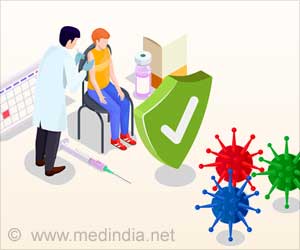.
A recent negative lateral flow or PCR test, or a positive antibody test showing they had the infection before and have some level of immunity.
Researchers from the Tony Blair Institute for Global Change in London argue that COVID-19 passes are a useful tool to enable people to prove that they are either fully vaccinated against the coronavirus, have immunity from a previous infection, or have recently tested negative for COVID-19.
If people are asked to prove their health status before entering a crowded or enclosed environment, this can potentially reduce the risk of covid being spread.
Kirsty Innes and Daniel Sleat from the Institute highlight the government’s Events Research Programme pilot which had provided optimism that tools such as a covid pass would help limit transmission at mass events.
In the first phase of that program, only 28 cases of covid-19 had been detected in 7,764 participants who completed the full testing requirements.
The Institute carried out an analysis based on a June 2021 model of the virus’s spread, created by researchers at Imperial College London for the UK’s Scientific Advisory Group for Emergencies (SAGE).
This showed that if the government had opted to make covid passes mandatory for crowded indoor and mass attendance settings in England after the lifting of final restrictions on 19 July, this could have reduced cases and deaths by as much as 30%.
They also acknowledge that safeguards are needed before adopting widespread use of COVID-19 passes such as ensuring that people who are unable to have a covid vaccination are not “unduly excluded”.
If passes become legally required, legislation should limit their use to managing the current covid pandemic, and protecting personal health data, and maximizing privacy.
Like more traditional public health measures such as mask-wearing or social distancing, passports can reduce risk, but cannot guarantee safety.
Communicating vaccination or test status provides some risk information, but it does not prove that people are free or safe from the virus.
The Ada Lovelace Institute’s research on the issue did not rule out passports as a valid tool to help transition from lockdowns but called for transparent scientific foundations such as models on their public health effects in comparison with other tools and technical design standards with clear, specific, and limited purposes.
In addition, normalizing third party policing of individuals’ status could contribute to additional barriers for minority ethnic people, who already faced “over-policing”.
Digital tools make data easy to share, which could benefit health research, but could also allow personal information to be shared with the police or insurance companies.
To create the technical, operational, legal, and policy infrastructure that would be required, policymakers should pause to calculate whether these are a justified health measure or whether an investment in passports might prove to be a technological distraction.
Source: Medindia



